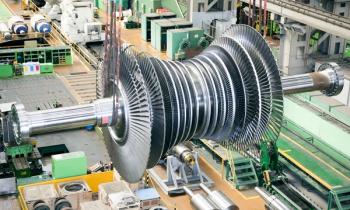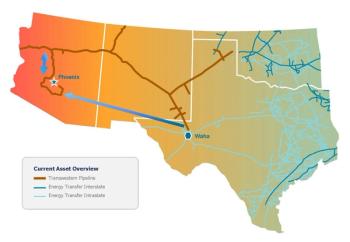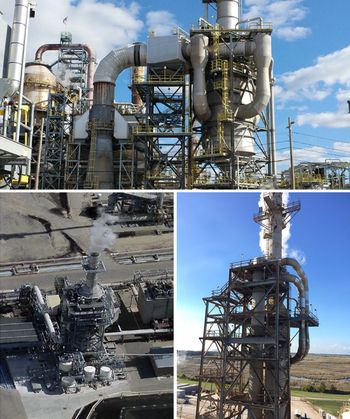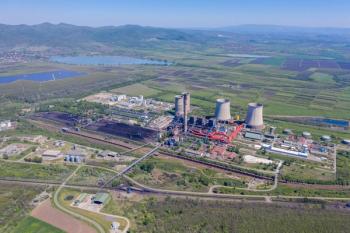
GOOD NEWS OR BAD NEWS?
If you want the bad news, go straight to page 15. If you prefer the good news, head for page 18. The bad news is that gas turbine (GT) sales are down for five straight years. That trend is expected to continue for at least the next couple of years.
The onslaught of renewables has left the GT market staggering on its feet. And now, the popularity of battery storage threatens to send it onto the canvas for a mandatory count. You can read all about it in our cover story, “Reeling From Renewables.” That story doles out the many factors are not only taking away orders for new power plants and gas turbines, they are also causing utilities and municipalities to cancel major upgrade projects. The prevailing
sentiment in some quarters appears to be that energy storage, renewables and future technological advances can
perhaps eliminate any need for GT power plants, so why upgrade them? The article ends on a more positive note, outlining areas of opportunity within a tough market. This includes LNG, oil & gas, various regions of the world and aeroderivative gas turbines.
Good news
Our show report by Mark Axford, “LNG Boom Dominates the CERA Conference,” details the potential being unleashed on the U.S. Gulf Coast due to the build out of pipelines and LNG export facilities. Soaring production in the Permian Basis of West Texas is fueling this boom. There is so much oil & gas that it is driving new market opportunities.
There is also good news from our Myth Busters in this edition. They tackle the myth that oil & gas are dead. There answer is a resounding “No.” They also conclude that the gas turbine marketplace is far from dead either. Our Myth Busters even offer an alternate theory for the downward trend of gas turbine sales. It is not renewables, they say. Instead, they assert that low sales are due to the cyclic nature of the market, and a tendency to over-build plants at favorable times. This leads to an inevitable downturn.
Alas, there is more bad news. We have been keeping an eye on the reciprocating engine market for some time. That sector used to only compete at the very low end of the power market. However, it has greatly expanded its capabilities over the past decade and can now provide combined cycle and CHP plants as large as 600 MW. To make matters worse, their operating characteristics may provide an advantage over GT power plants in some cases. You can read all about it in, “Recip Engines Up Their Game.”
Beyond these topical matters, the issue is packed with varied content from a great many sources. We have stories about:
• New water washing techniques
• Seismic monitoring
• Efficiency gains in combined cycle plants
• Cybersecurity
• HRSG maintenance
• A user group show report
• Filter selection
In conclusion, any stories about the death of the gas turbine industry can be considered as little more than propaganda. Yes, we may have a slower year or two, and there may be a few casualties. The industry will also need to adapt to changing needs and requirements. But for those who respond to this new reality, good times should lie ahead.
By the time you read this, we will be getting ready to head to Phoenix, Arizona for the annual Turbomachinery
Expo show. We look forward to seeing many of you there. Let us know what you think about these trends and whether you think the turbomachinery glass is half empty or half full.
Newsletter
Power your knowledge with the latest in turbine technology, engineering advances, and energy solutions—subscribe to Turbomachinery International today.




